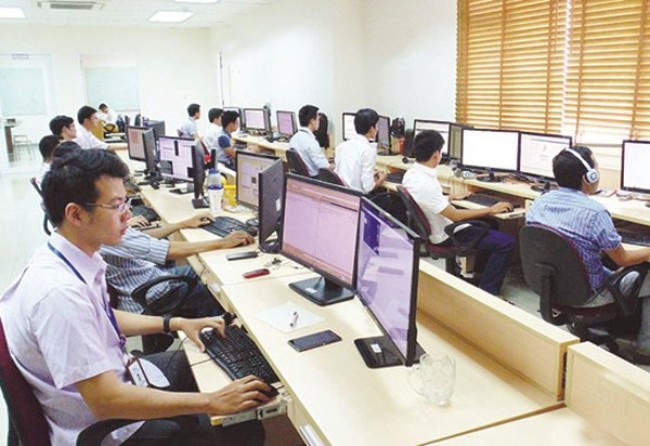PM asks for better preparation for Industry 4.0
 |
| Illustration photo |
The directive aims to actively maximize what the country will have from Industry 4.0.
Accordingly, the PM tasked ministers and ministerial-level leaders, provincial and municipal chairpersons to fulfill solutions and tasks by 2020.
Specifically, the Government chief asked for solutions to make breakthroughs in infrastructure, IT application and manpower improvement; develop digital connectivity infrastructure; ensure network safety; create equal conditions for citizens and businesses to access and develop digital contents.
The directive stresses the importance of implementing the Government’s Resolution 19-2017/NQ-CP, dated February 6, 2017, Resolution 35/NQ-CP, dated May 16, 2016, and Resolution 36a/NQ-CP, dated October 14, 2015 on further implementation of key tasks and measures to improve the business environment and enhance national competitiveness in 2017 and towards 2020.
Ministries and agencies were asked to promptly develop e-Government; review and abolish inappropriate business conditions; amend management regulations on exports and imports towards less administrative procedures.
They were assigned to review strategies and action plans in accordance with the development trend of Industry 4.0; build strategies on digital transformation, smart administration, prioritize digital technology industry, smart agriculture, tourism, and urban areas; review and select key products and national strategic competitive products.
The PM also noticed the importance of upholding a business start-up ecosystem; boosting scientific research and IT; connecting domestic and foreign IT experts.
Policies on teaching methods will be renovated in order to generate a human resource which is able to absorb new technological production trends.
Focusing on IT infrastructure development
The PM assigned the Ministry of Industry and Communicationsto develop IT infrastructure; encourage businesses to develop new technologies. Especially, telecom enterprises were asked to perfect the 4G network; research and develop a 5G network.
The Ministry of Science and Technology was instructed to develop the business start-up ecosystem; promote technological applications and transferring of key industries in Industry 4.0.
The Ministry of Education and Training was asked to educate science, technology, engineering and mathematics (STEM) in universal education program.
The Ministry of Labor, Invalids, and Social Affairs was assigned to renovate vocational training.
Encouraging technical innovations
The PM assigned the Ministry of Finance to build mechanisms, tax and financial policies to enable businesses to invest in technological research.
The Viet Nam Academy of Science and Technology and the Viet Nam Academy of Social Sciences were asked to research and evaluate the development trends of Industry 4.0.
| RELATED CONTENTS: | |
| Vietnam Manufacturing Expo opening the gates to Industry 4.0 | |
| Scantech rides the Industry 4.0 wave | |
| Why supply chain integration is crucial in Industry 4.0 Era | |
What the stars mean:
★ Poor ★ ★ Promising ★★★ Good ★★★★ Very good ★★★★★ Exceptional
Latest News
More News
- Foreign leaders extend congratulations to Party General Secretary To Lam (January 25, 2026 | 10:01)
- 14th National Party Congress wraps up with success (January 25, 2026 | 09:49)
- Congratulations from VFF Central Committee's int’l partners to 14th National Party Congress (January 25, 2026 | 09:46)
- 14th Party Central Committee unanimously elects To Lam as General Secretary (January 23, 2026 | 16:22)
- Worldwide congratulations underscore confidence in Vietnam’s 14th Party Congress (January 23, 2026 | 09:02)
- Political parties, organisations, int’l friends send congratulations to 14th National Party Congress (January 22, 2026 | 09:33)
- Press release on second working day of 14th National Party Congress (January 22, 2026 | 09:19)
- 14th National Party Congress: Japanese media highlight Vietnam’s growth targets (January 21, 2026 | 09:46)
- 14th National Party Congress: Driving force for Vietnam to continue renewal, innovation, breakthroughs (January 21, 2026 | 09:42)
- Vietnam remains spiritual support for progressive forces: Colombian party leader (January 21, 2026 | 08:00)
















 Mobile Version
Mobile Version